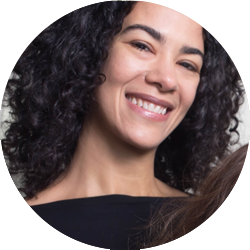Q. I grew up in a home where I was never allowed to be messy. My grandmother or mother always quickly cleaned up everything in anger. I don’t want to be that kind of parent! I don’t want my child constantly caught up in my anxiety. My daughter is 14 months. She loves to rearrange things and makes huge messes when she eats (baby-led weaning). She also pretends to clean everything (hahaha, which makes me realize at least one person knows what mom is up to all day).
So, how do you let your child have messes (for a while) without constantly following behind them with a broom, dustpan, and 409? –T.W.
A. Isn’t it crazy how our kids bring up all these childhood issues of our own? It can feel overwhelming, but it also can start a healing process, in a way. A few ideas:
In the moment, try naming what you’re feeling: “I’m feeling anxious about this mess.” That can help keep your feeling from escalating. (Here’s the science behind naming feelings.) A step further into mindfulness would be to sit and notice where you feel this in your body. (Is your jaw tight? Are your shoulders up?) Focus on that feeling with a sense of curiosity. “Hmm, that’s what anxiety feels like for me.” Acknowledgement and acceptance help feelings pass. Also over time, you will widen, ever so slightly, that gap between recognizing what your body is telling you and your reaction.
Know what calms you down. Is it a few deep breaths? Is it doing something else for a while so you’re not staring at her making the mess?
Let yourself be right: “It’s OK if I decide to clean this up now, and it’s OK if I decide to clean this up later.” “These are the kinds of messes I can let go of right now, and it’s OK that this is a process.”
Also: Would anything make meal-time messes easier to clean up, so they feel like less of a big deal? For example, we have one of those big, clear plastic office mats under the high chair. And an all-wood high chair that’s easily wiped off. And this full-sleeve bib. And a bowl that catches some decent spills. (Still do, three years later.)
You might even join in the messiness a few times. Hey, you didn’t get to make a mess as a kid. What’s it like to finger paint on the table with pureed broccoli? (And what else could we smush?) What’s it feel like to connect with your daughter this way?
(Are you a perfectionist? Or an anxious parent? I have a survey for you.)
Things being rearranged
Try looking at your daughter’s handiwork and finding something good to say about it.
“Wow, you stacked those. You knocked them down. You wanted to see what would happen.”
“Ah, you like the blue with the brown. You’re figuring out which things you like next to each other.”
“Hmm, you put the iPad in the laundry basket. Thank you for showing me!” (I might have personal experience saying this, post panic attack, since the missing iPad contained my husband’s interviews for a book he’s writing….)

Much of the task, I find, is stopping yourself before you say anything. You still have the negative thought: “Hey! NO!”
Like when I found my 2-year-old standing on the bathroom counter with a spray bottle aimed at the mirror.
But you don’t say that.
You pause. You think. “Is this so terrible? What might she be getting out of this?” And then what comes out of your mouth can sound more like,
“Wow, you’re painting with water. Look at that pattern there.”
And, after giving it a little more thought: “The bathroom is a fine place to spray water. Excellent choice, really.”
And “Here’s a towel to dry the mirror when you’re done.”
But mostly, be gentle with yourself. This is a process.
As for your parents and the way they raised you … who knows all the childhood reasons why they are the way they are. Maybe you can talk to them about it and maybe you can’t. Either way, you know that you want to make your own path.
And you are.
(Are you a perfectionist? Or an anxious parent? I have a survey for you.)
Written by
Tracy Cutchlow
Tracy is the author of the international bestseller Zero to Five: 70 Essential Parenting Tips Based on Science, a public speaker, and a creator of places to speak and be heard. Sign up for her newsletter here.

